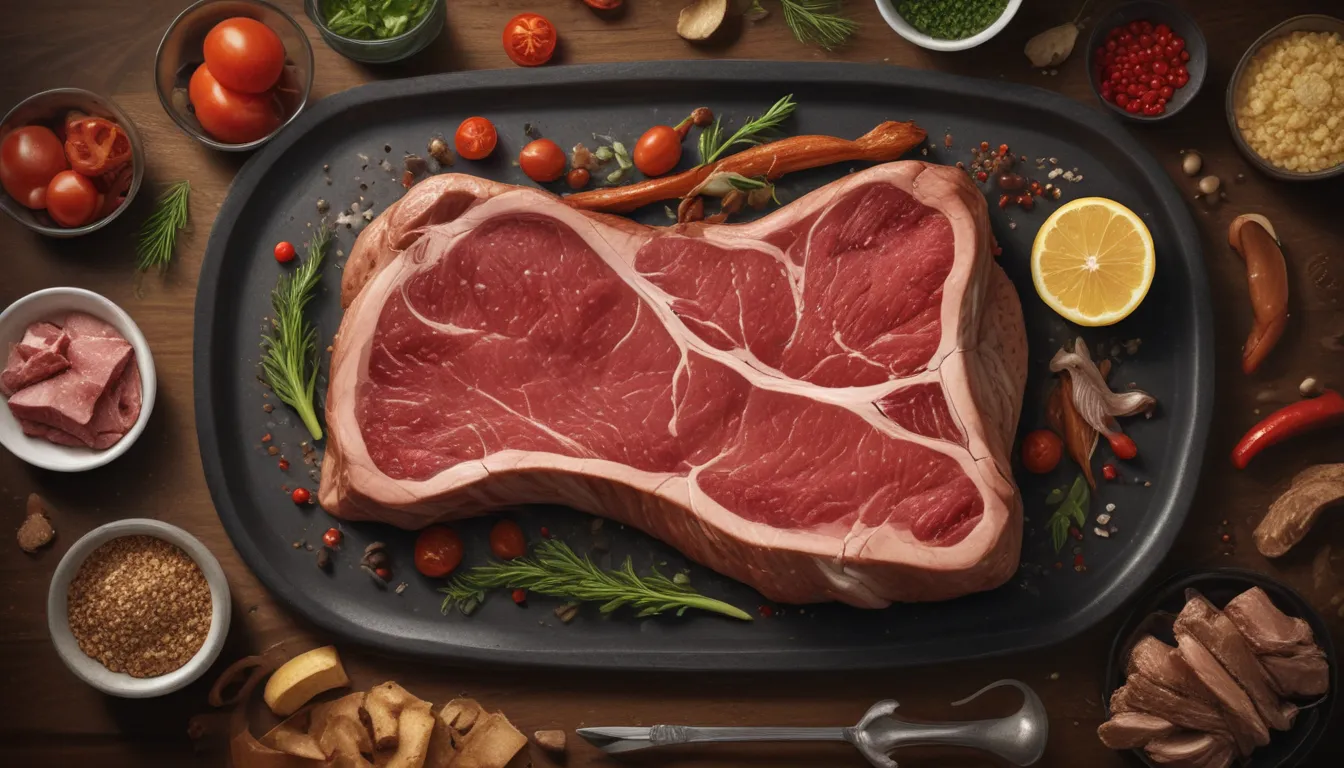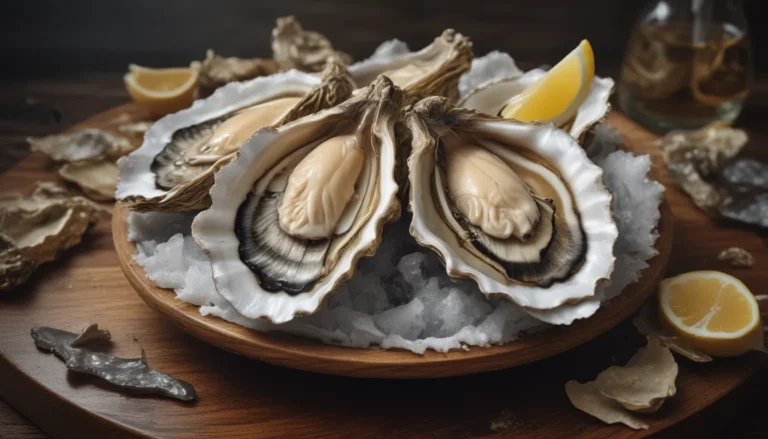The pictures in our articles might not always show exactly what the text is talking about. We use these images to make the article more interesting and eye-catching. They are there to add to the text, but not to replace it or show every detail.
Are you a meat enthusiast looking to explore the nutritional benefits of the iconic T-bone steak? Look no further! In this comprehensive guide, we'll delve into 10 essential nutrition facts about T-bone steak, from its protein powerhouse to its abundance of vitamins and minerals. Whether you're a seasoned chef or just starting your culinary journey, this article is here to help you savor the goodness that this flavorful cut of meat has to offer!
Protein Powerhouse
T-bone steak is more than just a delicious cut of meat—it's also a fantastic source of high-quality protein. With approximately 22 grams of protein in a 3-ounce serving, T-bone steak is a satisfying and nourishing choice for those looking to build and repair tissues in the body.
Rich in Vitamins
When it comes to vitamins, T-bone steak doesn't disappoint. Loaded with B vitamins such as vitamin B12, B6, and niacin, this steak plays a crucial role in supporting nerve function, red blood cell production, energy metabolism, and brain function.
Abundant in Minerals
Minerals are essential for various bodily functions, and T-bone steak delivers on this front as well. Packed with iron, zinc, selenium, and phosphorus, this steak promotes immune function, bone health, energy metabolism, and oxygen transport in the blood.
Healthy Fats in Moderation
While T-bone steak is known for its marbling and flavorful fats, it's important to consume these fats in moderation. Primarily containing monounsaturated and saturated fats, T-bone steak can be a healthy addition to a balanced diet when enjoyed responsibly.
Source of Essential Amino Acids
The essential amino acids found in T-bone steak are vital for muscle growth, hormone production, and enzyme synthesis. With a complete profile of essential amino acids, this steak provides the building blocks necessary for various physiological processes in the body.
Nutrient-Dense Cut
Considered a nutrient-dense food, T-bone steak offers a significant amount of nutrients relative to its calorie content. In addition to protein, vitamins, and minerals, it also contains essential micronutrients like potassium, magnesium, and vitamin E.
Boosts Iron Intake
With its heme iron content, T-bone steak is an excellent choice for boosting your iron intake. Iron is crucial for oxygen transport, energy production, and red blood cell formation, making T-bone steak a valuable addition to your diet.
Supports Muscle Development
Athletes and fitness enthusiasts rejoice—T-bone steak supports muscle development and maintenance with its high protein content and essential amino acids. Whether you're looking to repair muscle tissue or grow your muscles, this steak has got you covered.
Provides Satiety
The protein and fat content in T-bone steak contribute to a feeling of fullness and satisfaction after a meal. Including this steak as part of a balanced diet can help curb hunger cravings and promote overall meal satisfaction.
Delicious and Enjoyable
Beyond its nutritional benefits, T-bone steak is simply delicious and enjoyable. Whether you're celebrating a special occasion or just craving a flavorful meal, this steak's tenderness, succulence, and robust flavor make it a culinary delight.
Conclusion
T-Bone steak offers a delightful combination of flavor and nourishment, making it a must-have in any meat lover's diet. From its protein content to its vitamin and mineral profile, this steak has something to offer everyone. So, fire up the grill or heat up the skillet and indulge in the succulence of this classic cut of meat.
FAQs
How should I cook T-bone steak for optimal flavor and tenderness?
For optimal flavor and tenderness, consider grilling, broiling, or pan-searing your T-bone steak. Cooking to medium-rare or medium doneness allows the steak to retain its juiciness while ensuring it reaches a safe internal temperature.
Can T-bone steak be a part of a healthy diet?
Yes, T-bone steak can be part of a healthy diet when enjoyed in moderation and as part of a balanced meal. Pairing it with vegetables and whole grains creates a well-rounded and nutrient-rich dish.
Can T-bone steak be enjoyed on a low-carb or ketogenic diet?
Absolutely! T-bone steak aligns well with low-carb and ketogenic diets due to its protein and fat content. However, be mindful of portion sizes and balance your meal with other nutrient-rich foods.
Are there any health concerns associated with consuming T-bone steak?
While T-bone steak offers numerous nutritional benefits, it's essential to consider individual health factors and dietary needs. Consult with a healthcare professional or registered dietitian if you have specific health conditions or dietary restrictions.
Can T-bone steak be part of a weight-loss diet?
When incorporated mindfully, T-bone steak can support weight management goals. Its high protein content and satiating properties help promote feelings of fullness and muscle maintenance during calorie restriction.
Was this article helpful?
We are committed to providing accurate and engaging content for our readers. Each fact on our site is contributed by users like you, ensuring diverse insights and information. Our dedicated editors review each submission to maintain the highest standards of accuracy and reliability. Trust in our commitment to quality and authenticity as you explore the world of nutrition and culinary delights.






